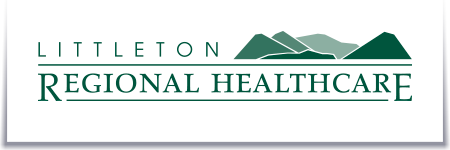An Electronic Health Records (EHR) system is the foundation of any healthcare organization. As part of the American Recovery and Reinvestment Act, all public and private healthcare providers and other eligible professionals were required to adopt and demonstrate “meaningful use” of electronic medical records by January 1, 2014, to maintain their existing Medicaid and Medicare reimbursement levels. Since the mandate, the use of these systems has spread and shown many benefits to health organizations. If you were to ask someone working in healthcare today, you would undoubtedly hear how an EHR system is critical to every part of healthcare operations.
 Effective midnight on October 3, 2022, LRH now relies on Oracle Cerner’s Community Works as its EHR system. This conversion marks LRH’s departure from its previously used three separate systems – one for the hospital, one for the physician practices at LRH, and another for The Alpine Clinic. Not surprisingly, utilizing three systems within one organization created unnecessary inefficiencies and the three systems did not always integrate as they should. Each system often worked independently, acting as silos within LRH that created challenges for medical records, billing, and admitting.
Effective midnight on October 3, 2022, LRH now relies on Oracle Cerner’s Community Works as its EHR system. This conversion marks LRH’s departure from its previously used three separate systems – one for the hospital, one for the physician practices at LRH, and another for The Alpine Clinic. Not surprisingly, utilizing three systems within one organization created unnecessary inefficiencies and the three systems did not always integrate as they should. Each system often worked independently, acting as silos within LRH that created challenges for medical records, billing, and admitting.
The conversion to a single platform will allow LRH to better serve its patients, regardless of where they receive services within LRH. What does the new system mean for patients of LRH? “This single platform allows for better integration throughout our organization, which is very important as we continue to evolve and grow here at LRH,” said Robert Nutter, President and Chief Executive Officer. “This new system allows for more automation and streamlining processes, while also enhancing the patient experience. Our old systems, especially the patient portals within them, were antiquated and inefficient,” Nutter added.
An EHR system is a backbone for clinical care as well as registration, medical records, billing, and more. With the new EHR at LRH comes a new patient portal that will replace the two it previously used. LRH encourages its patients to sign up for the new patient portal once it becomes available and will offer assistance with getting set up. LRH will not continue to populate the old portals after the October 3 conversion to Cerner or actively manage the information within these portals. Patients will continue to have access to their personal health information within the previously used portals, but this data will not transfer into the new Cerner patient portal LRH will be using.
In what other ways does the new EHR system directly affect patients of LRH? With a user-friendly mobile phone application, patients will have access to an appointment calendar, on-demand medical records like appointment summaries and lab results, a direct communication line with providers, and the ability to check and pay account balances.
“If an EHR system is not working for you, it is working against you,” noted Dr. Edward Duffy, Executive Vice President and Chief Medical Officer at LRH. “We were at that point and it was clear it was time to explore alternatives,” he added. Dr. Duffy has been intimately involved with the system conversion and has worked very closely with the team at Cerner and the third-party consultants hired by LRH to ensure the conversion was done properly. “There are really two major EHR systems used by healthcare organizations. We looked at what organizations similar to LRH use and what others around the state used to help us determine which would best meet our needs,” Duffy mentioned. The new system supports the clinical collaborations LRH is fostering with regional healthcare partners.
An EHR conversion is not a quick or simple undertaking. It involves training LRH’s entire workforce of over 550 individuals on the new platform. LRH is committed to providing uninterrupted patient care and is excited about the opportunities this new system presents. The next time you visit LRH for an appointment, you may be asked additional questions or have to spend a few minutes longer with registration, but rest assured, the long-term benefits of this state-of-the-art system are, without a doubt, a huge win for our community hospital and the patients it serves.





